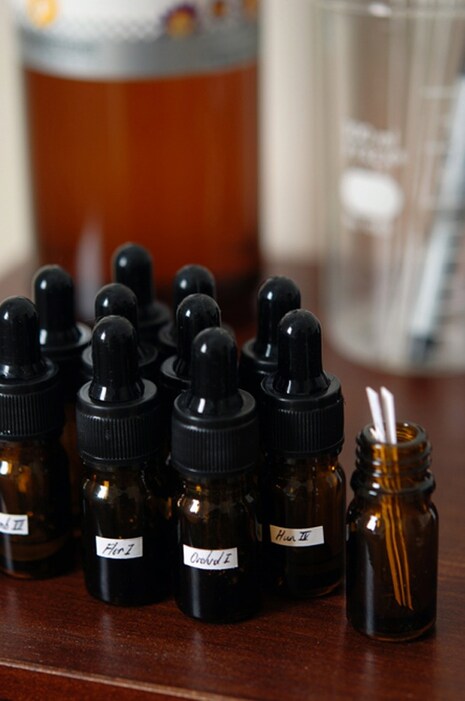Perfume is regularly documented and celebrated in the media, from reviews of timeless classics to the lucrative campaigns of the latest release. Very little column space is dedicated to the science of smell. Having just kicked off AnOther's
Perfume is regularly documented and celebrated in the media, from reviews of timeless classics to the lucrative campaigns of the latest release. Very little column space is dedicated to the science of smell. Having just kicked off AnOther's Olfaction column it feels appropriate to dedicate a post on smell and the human olfactory system.
Professor Tim Jacob is based at School of Biosciences at Cardiff University and is a world-leading authority on smell. Over the past five years, his laboratory has been investigating the psychophysiology of smell: how we smell, why we smell and what differentiates different smell qualities. He was recently invited by the Wellcome Collection to give a talk to coincide with its current exhibition, Dirt: The Filthy Reality of Everyday Life. In an attempt to enlighten his audience about scent, Jacobs explained how smell affects us personally, and how the olfactory system is an important part of our physiology and psychology.
Smell is arguably one of our most powerful senses – it can affect our mental state, our physical performance and even our basic physiological responses. "Smell is rather different from the other senses, as it has a strong, subconscious input to the brain," says Jacobs. "Studies have been done to try and find out which sense has the most power to evoke memory and emotion. Music can have a powerful effect, but smell has been found to be the most potent stimulus for evoking memory and the emotions associated with it." Surveys have found that it is the sense people would be most prepared to live without. It has been reported that a fifth of people that lose their sense of smell become depressed.
Jacobs passed vials around the auditorium and encouraged his audience to vocalise their first thoughts of the aroma. After a round of 'christmas', 'childhood', 'the dentist', 'sweet shops', it was revealed that the smell was cinnamon. This led Jacobs onto the prolific work of Marcel Proust on the subconscious. It was reported that Proust's writer's block was cured by eating a French madeleine; he went on to write subconsciously for 60-hour periods. With the cinnamon as the case in point, Jacobs explained, "when you begin to associate the smell with a captured mood and circumstance is a very powerful connection called a Proustian memory, or an autobiographic memory. That kind of memory lasts a lifetime." Another example of a memory prompt is revising for exams. "It has been shown many times that if you have a smell present during encoding [the learning stage] and the same smell present in the recall [the exam], then you outperform people who don't have that smell."
As well as its connections with memory, smell is also associated with chemical signaling and detection. Dogs have been trained to sniff out cancer: "a study was done in 2004 where they trained dogs to sniff out bladder cancer in urine with a 41% success rate. Two years later, a study in the US, which involved dogs detecting breast and lung cancer had a very high rate of accuracy at 88-97%", explained Jacobs. It has also been found that 'happy' sweat and 'fear' swear can be identified, interestingly women are more receptive.
Unlike our other senses, smell doesn't shut down when we sleep, Jacobs explained. "Our sense of smell has direct access to the subconscious areas of the brain which affects emotion, mood and memory. So it makes complete sense that different smells can influence the emotional tone of a dream. If you give people smells while they sleep and wake them up and ask them to record their dreams, pleasant smells give pleasant dreams and vice versa. It's an involuntary response."
Dirt – The Filthy Reality of Everyday Life runs until August 31 at Wellcome Collection, London.




